How To Donate Organs in India: Process, Eligibility & What Can Be Donated
By donating an organ, you can save upto to nine lives! Organ donation is donating an organ to someone in need of a transplant. In India, there is a wide
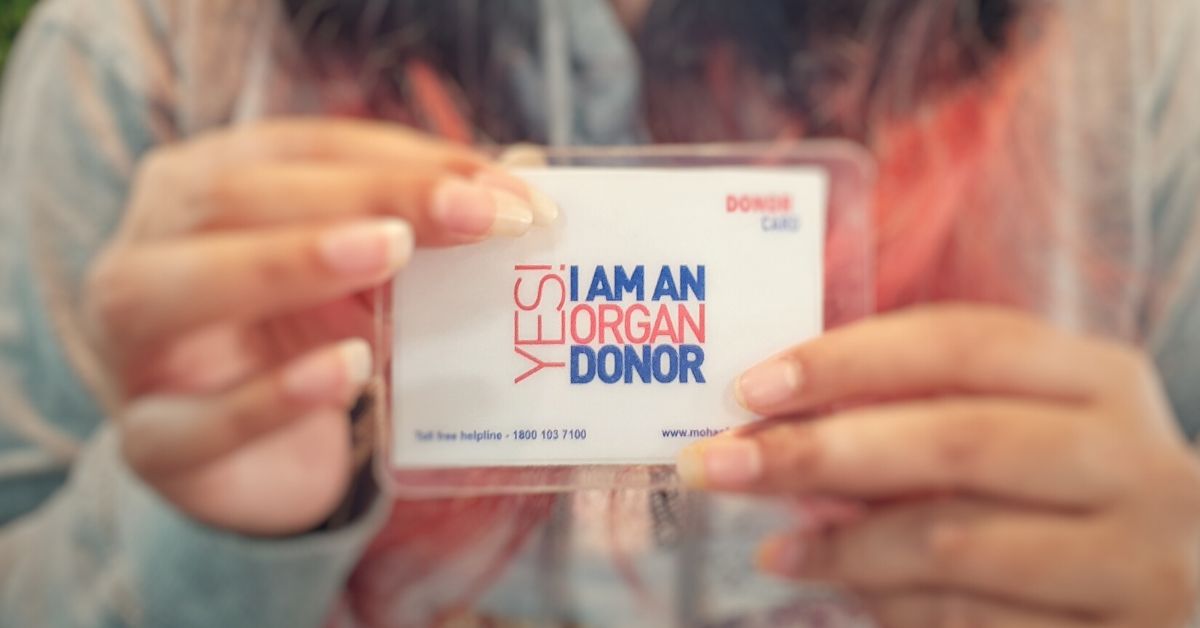
By donating an organ, you can save upto to nine lives!
Organ donation is donating an organ to someone in need of a transplant. In India, there is a wide gap between the demand and supply of organs. Annually, four lakh people die waiting for a transplant which can be attributed to improper infrastructure, lack of willingness and most importantly, ignorance about the process.

Think about it. One decision, and you have the potential to give close to nine people a chance at life. Become a donor.
Here are six things you must know when you decide to become one.
1) Can You Be A Donor?
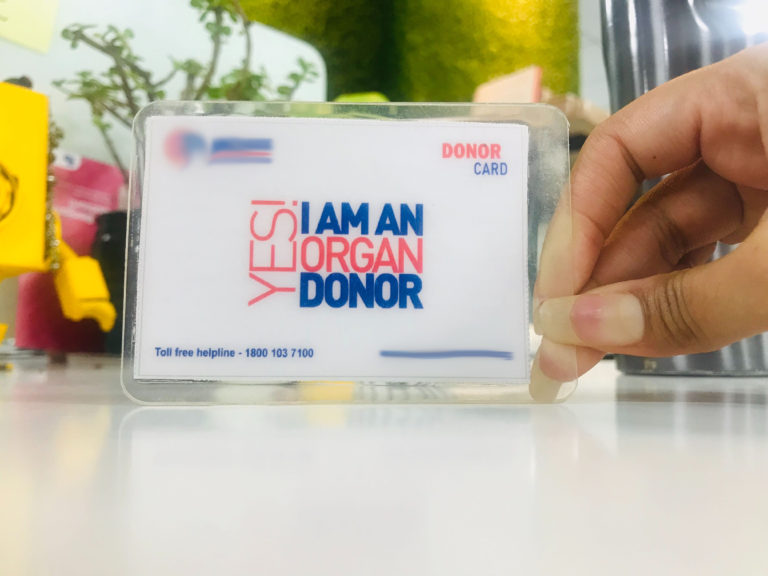
Anyone can register to be an organ and tissue donor once they are 18 years of age.
Please Note: Medical condition of a registered donor is only evaluated at the time of organ transplant.
2) What Organs Can Be Donated
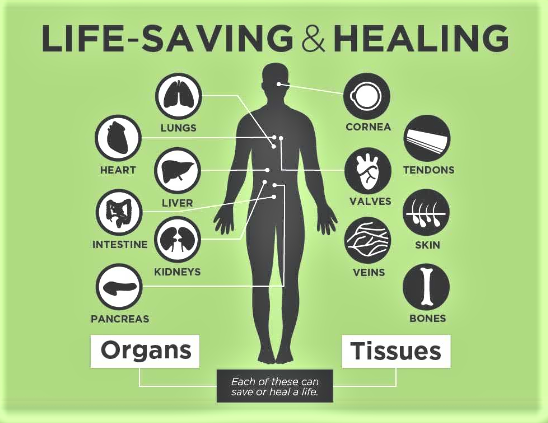
Organs like the kidneys, pancreas, liver, heart, lungs, and intestines can all be donated. As for tissues, one can pledge to donate corneas, skin, bone, heart valves, the middle ear, veins, tendons, and ligaments.
3) Register Online
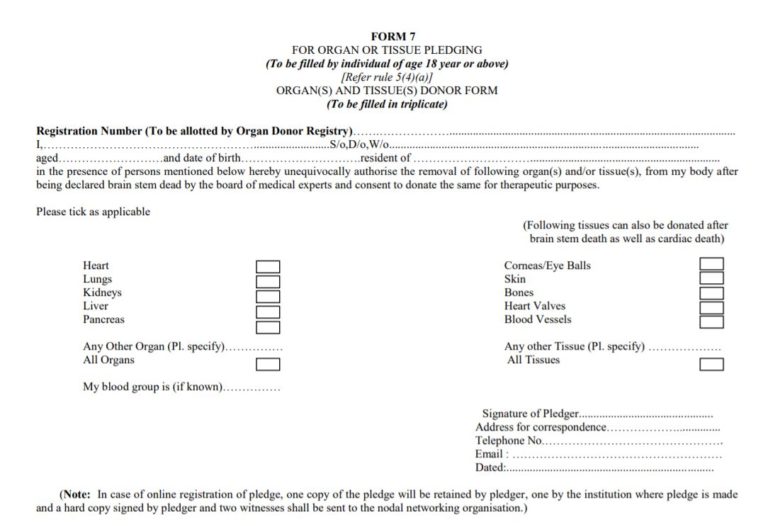
Fill form 7 of the Transplant of Human Organs Act online and give your consent for organ donation.
You can also register offline by downloading the form and sending it to:
National Organ And Tissue Transplant Organisation, 4th Floor, NIOP Building, Safdarjung Hospital Campus, New Delhi-110029.
There are also several non-profit agencies where one can register. Here are some:
1. Mohan Foundation:
2. Shatayu
3. Gift Your organ
For any queries regarding organ donation, you may also call – 1800 4193737 (Toll-free by MOHAN Foundation)
You will receive an organ donor card upon registering.
4) Organ Donation Option On Driving Licences
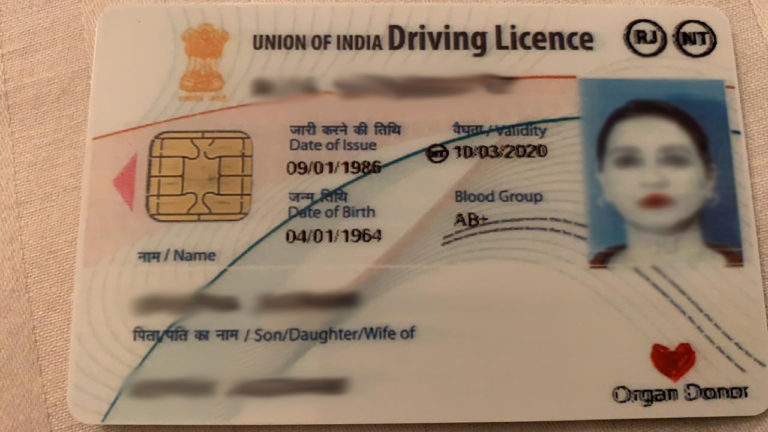
Rajasthan, Chandigarh and Karnataka are among the first states to introduce an option to add an organ donation logo on a driving licence. All a person has to do is tick the OD (Organ Donor) column on the application form that will imply your willingness to donate.
Please Note: Do check if your state offers the option as not all states have implemented the OD rule for now.
5) Inform Your Family

A donor card only shows the willingness of the person to donate. Possessing the card does not mean you are legally bound to donate. In case of a donor’s death, the hospital has to take consent from the family even if he/she has a card.
Thus, it is recommended that you inform your family as soon as you register so that they can respect your decision.
6) Deceased donations

If a person has been declared brain dead but did not have a card, the family or lawful custodian needs to fill a consent form at the hospital for organ donation.
The driving licence feature has made the registration process very easy. Do not let your organs go waste when they can save lives.”
Share this “how-to” with your friends & family
Share on facebook
Facebook
Share on twitter
Twitter
Share on linkedin
LinkedIn
If you found our stories insightful, informative, or even just enjoyable, we invite you to consider making a voluntary payment to support the work we do at The Better India. Your contribution helps us continue producing quality content that educates, inspires, and drives positive change.
Choose one of the payment options below for your contribution-
By paying for the stories you value, you directly contribute to sustaining our efforts focused on making a difference in the world. Together, let's ensure that impactful stories continue to be told and shared, enriching lives and communities alike.
Thank you for your support. Here are some frequently asked questions you might find helpful to know why you are contributing?













